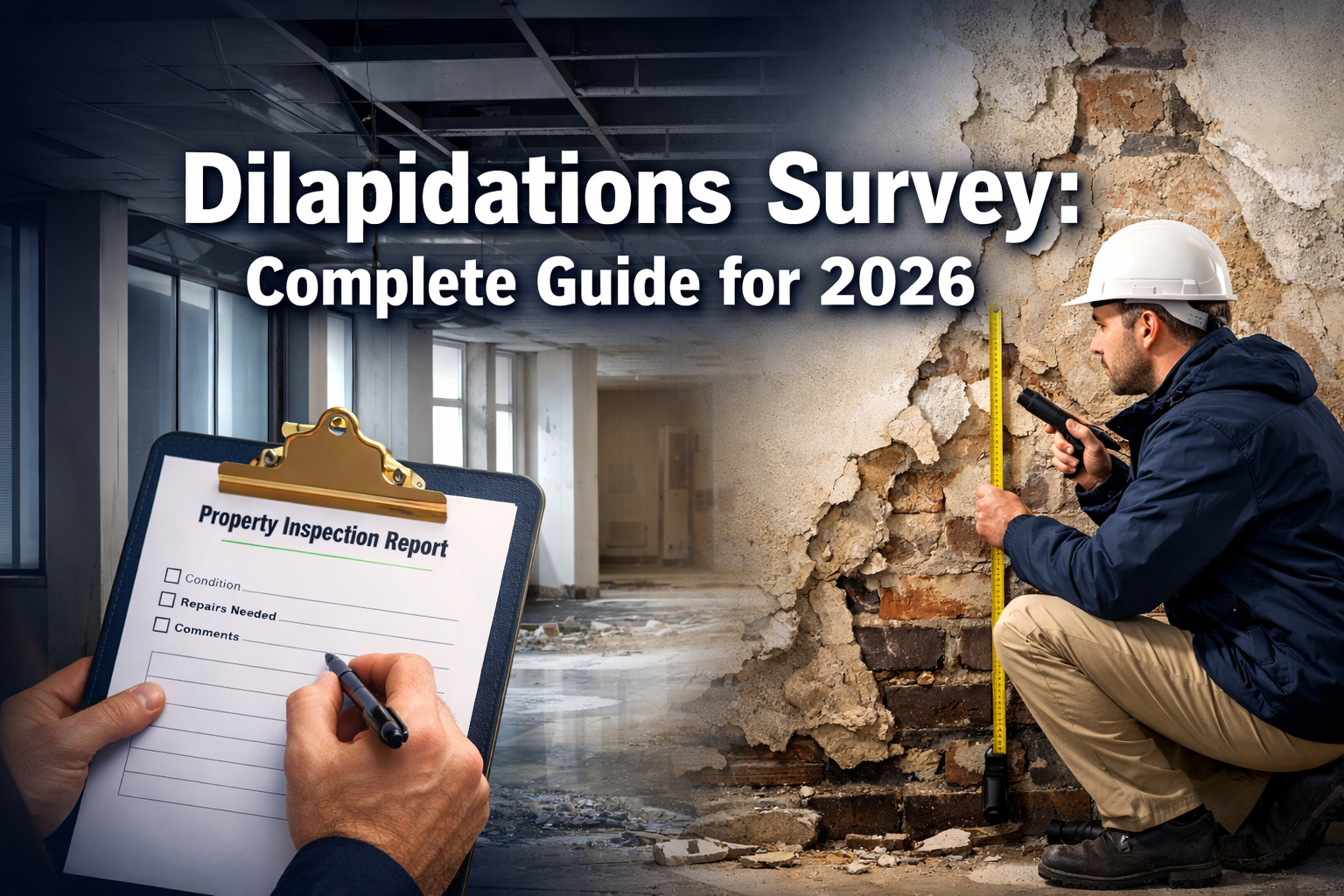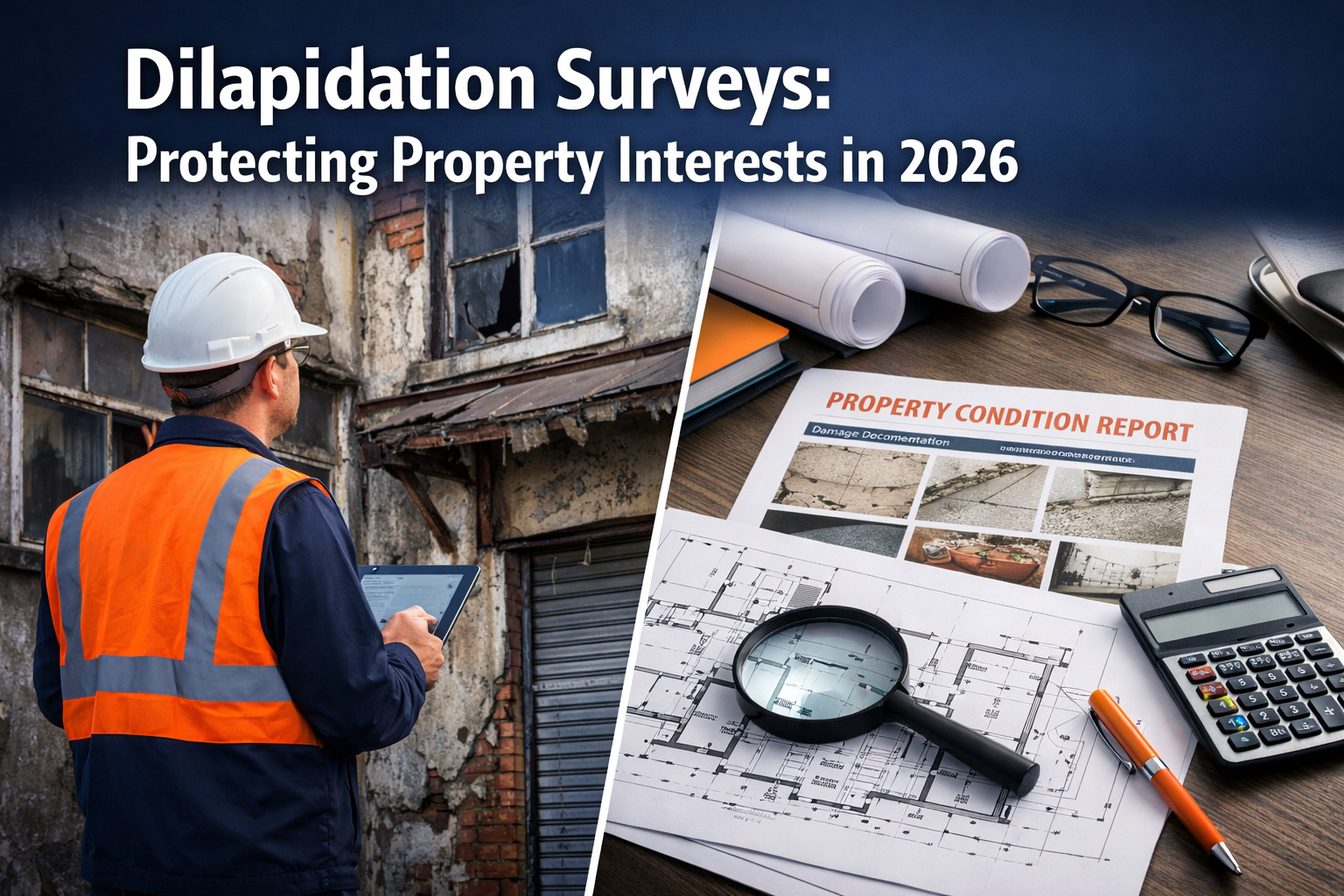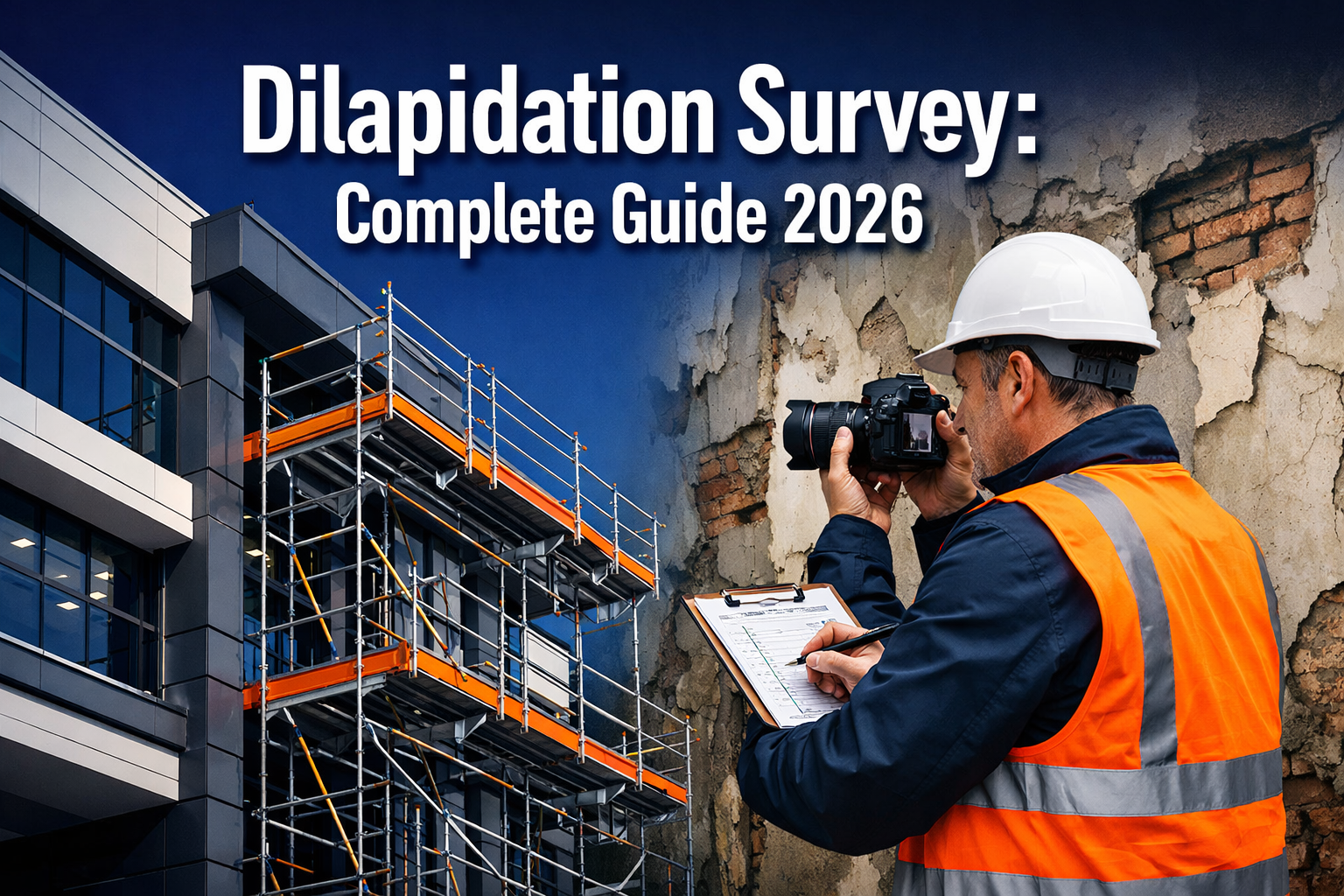- Home
- Surveys
Property surveys conducted in Canterbury, London, Bristol, Birmingham, Manchester, and Cardiff
When purchasing a property in Canterbury, it is crucial to contemplate a property survey. A survey is generally necessary when buying not just a house, but also a flat or commercial building. If you’re considering a lease extension in a property, that also requires a survey.
Given the rich history of buildings and the diverse property market in the capital, this is an important aspect in your potential investment. So, always engage a surveyor.

Surveyors with Experience Based in Canterbury
In this guide, you will find valuable information concerning property surveys in the Canterbury area. We will examine both the role of the CIOB, RPSA or RICS chartered surveyor in Canterbury and the different types of surveys one might commission, as well as the Canterbury property market itself.
Indeed, Canterbury has a diverse property market, encompassing everything from brand new builds to ancient Listed Buildings. There are issues that affect homes in Canterbury, chiefly concerning subsidence, that are largely a consequence of the clay that the town is built upon. If you live in a property older than about 30 years—even new build—you ought to seriously consider getting a survey before you buy, even if only as an aid to forecasting your likely repair bills.
When a building survey is conducted, it is usually by a Member of the Royal Institution of Chartered Surveyors (RICS), a Member of the Chartered Institute of Building (CIOB), or another recognisable body of building professionals such as Residential Property Surveyors Association (RPSA).
These professionals are the most trustworthy people to carry out a building survey because they are regulated by the institutions of which they are members. The institutions have educational entry requirements, which means that their members have at least a baseline level of building surveying knowledge and skills. After members have obtained their initial qualifications, the institutions keep them on a short lead: they have to do continuous professional development (CPD) to stay in good standing.
Property Survey Types
The kind of survey your property needs depends on what kind of property you’re buying, how old it is, and whether you’re financing it through a mortgage. If you’re getting a mortgage, for example, your lender will likely require a certain type of survey to be done beforehand. The most basic is a Level 1 survey. The next step up is a Level 2 survey. If you’re buying a house and the lender requires a survey, most lenders are going to ask for a Level 2 or Level 3 survey. No buildings are perfect, but a Level 3 survey should give you the best idea of what’s wrong with the house (if anything) and what needs to be fixed.
Is a Property Survey Necessary for Me?
Failure to obtain a property survey increases the risk of loss from some property defects. Any defect, particularly a serious one, can lead to huge costs for correction. A chartered surveyor’s pre-purchase or right-to-buy report would give you valuable information about the property’s condition. It might not be pleasant to read—you might see images of defects, required remedies, etc. However, these reports give you the chance to:
- Decide if you want to go through with the purchase at all; or
- Ask the vendor to remedy the defects; or
- Renegotiate the purchase price.
What is the Cost of a Property Survey?
Your property survey will run anywhere from several hundred to several thousand pounds—in some cases, even over £2,500—if it is really extensive. For most houses constructed within the last couple of decades, a straightforward Homebuyers report suffices, but most clients prefer a Full Building Survey to be safe. If we are talking about something that is older, larger, or pricier, though, it is more likely that you will need the most in-depth building survey (Level 3).
What Advantages does a Property Survey have?
Engaging a surveyor in Canterbury for your new home needs is truly advantageous. When it comes to acquiring a property in Canterbury, you need to think about a range of things.
You might be just purchasing your first home, investing, remortgaging, or just carrying out due diligence on a residential or commercial property. Either way, the mortgage company will require some form of survey to be carried out; it will want a valuation at least.
Spotting Defects: some may be small and easily remedied, but others could require you to negotiate with the vendor over the purchase price, reconsider the purchase altogether, or rethink how you’ll ensure proper maintenance of the property in the future.
Future Planning: whether the property is new or old, knowing its condition helps you plan more effectively for the future. Your surveyor can identify issues that may provide you with leverage in re-negotiating the price of the property or persuade the vendor to undertake fixes and save you costs.
Cost of Property Survey: the quotation for any property survey usually depend on the size, location, and value of the property. To get a full picture of any potential issues the property might have, it is sometimes worth spending more on a full building survey instead of the less expensive option of a homebuyer’s report in order to avoid unexpected issues with the property.
The function of RICS Chartered Surveyors in Canterbury, London, Bristol, Birmingham, Manchester, and Cardiff
The property surveying industry in the UK is regulated partly by the RICS, which is a private entity, not a government agency. Within this industry, there are many UK qualification routes. This means that while some property surveyors offer property surveying services without being members of the RICS, they may still be regulated under CIOB or RPSA, which is sufficient. Canterbury has many expensive homes, and the local economy is heavily dependent on property. A CIOB, RPSA or RICS-accredited property surveyor working in Canterbury offers their clients a very high quality of service.
Expert Witness Bexley
We offer the services of a panel of seasoned surveyors experienced in disputes. Your expert witness surveyor will prepare a Part 35 compliant report in accordance with the Civil Procedure Rules (CPR).
Schedule of Condition
A schedule of condition reviews the condition of the property at the date a tenant moves in or before any construction takes place. For both landlord and tenant benefit, the Schedule of Condition protects against any dispute that might arise over the condition of a property. It provides a baseline to prove whether damage has occurred as a result of tenancy or nearby works (e.g. party wall).
Costs of a Property Survey
A full building survey typically commands a market price starting at about £800. Yet, this report’s impressive and invaluable capabilities mean that it is well within the realm of affordability when you consider the prospect of spending thousands more to fix any problems that could be lurking in your potential future home
When we look at the prospect of purchasing an older and more valuable property, not having this report could potentially cost you more if you miss the opportunity of price renegotiation or a request to remedy problems found.
Valuation: this determines a property’s market value and the price at which it could be sold, that is, what someone would be willing to pay for it (enough to satisfy your mortgage provider). Valuations may refer to an appraisal, a market value assessment, or a tax assessment. Valuers take into account the property’s basic attributes (size, location, age, etc.) and its condition and figure out what it could sell for. If you’re looking to refurbish a property, you can budget based on the expected market value after your work is done. The average cost of a valuation is around £700.
Specific Defect Report: when it comes to a particular issue with the property—like subsidence or dampness that the mortgage valuation or building survey has indicated—it may need extra attention. You could have a Structural Engineer or surveyor conduct a Specific Defect Report. This survey concentrates on one issue and leaves everything else alone. It’s the most focused and intense survey you can have done on a specific problem that may threaten the property’s structure. It usually costs between £600 and £1,500.
Aerial and roof surveys: some aerial or roof surveys are going to cost significantly less than a full building survey. If a particular issue with the roof has been brought to light by either a building survey or a mortgage valuation, then you will need an aerial or roof survey to investigate further. Seeing the roof condition is key to understanding whether a re-roofing is needed.
Roof surveys are typically conducted by a roof tech getting on the roof, using a pole camera or drone. They typically cost in the region of £600 and can cost considerably more if the property is large, if it is located in a more expensive region, or if it has a high value.




